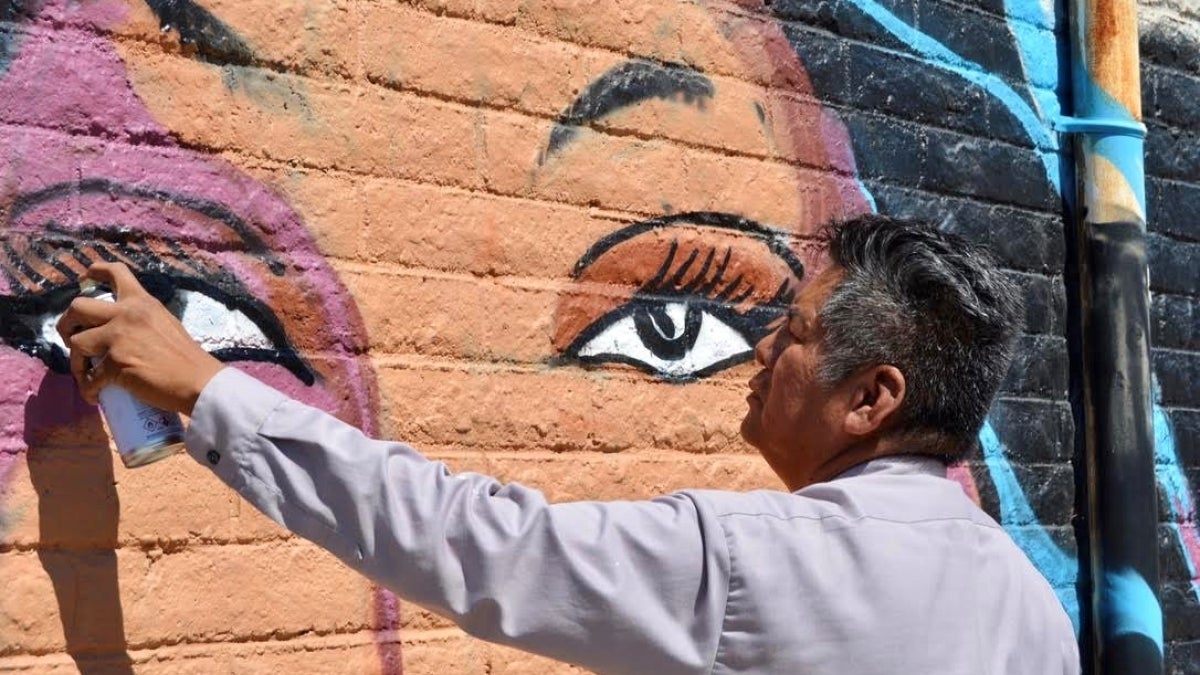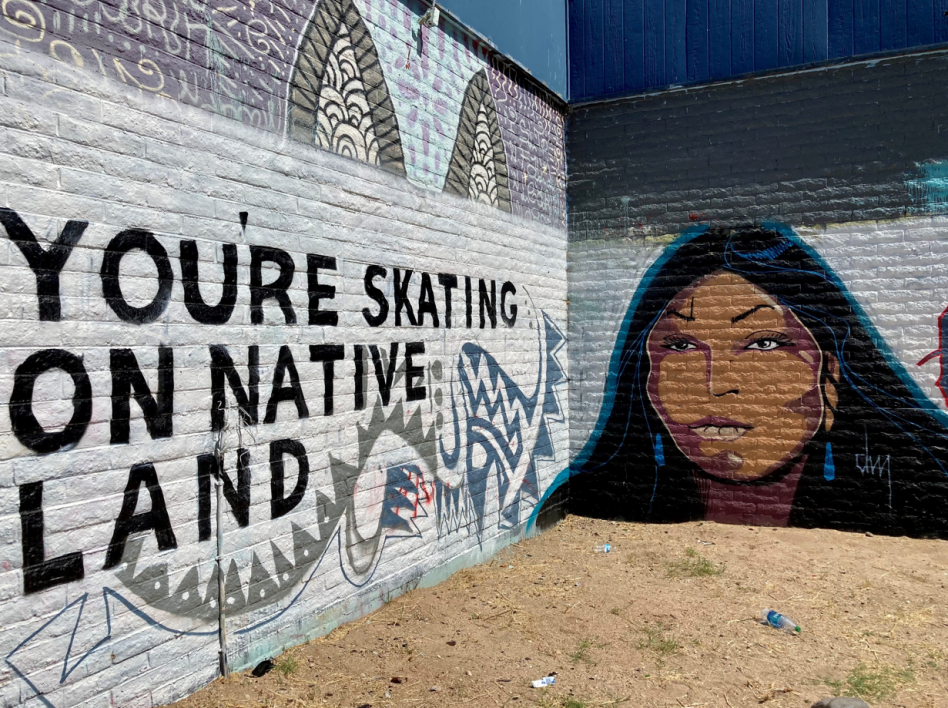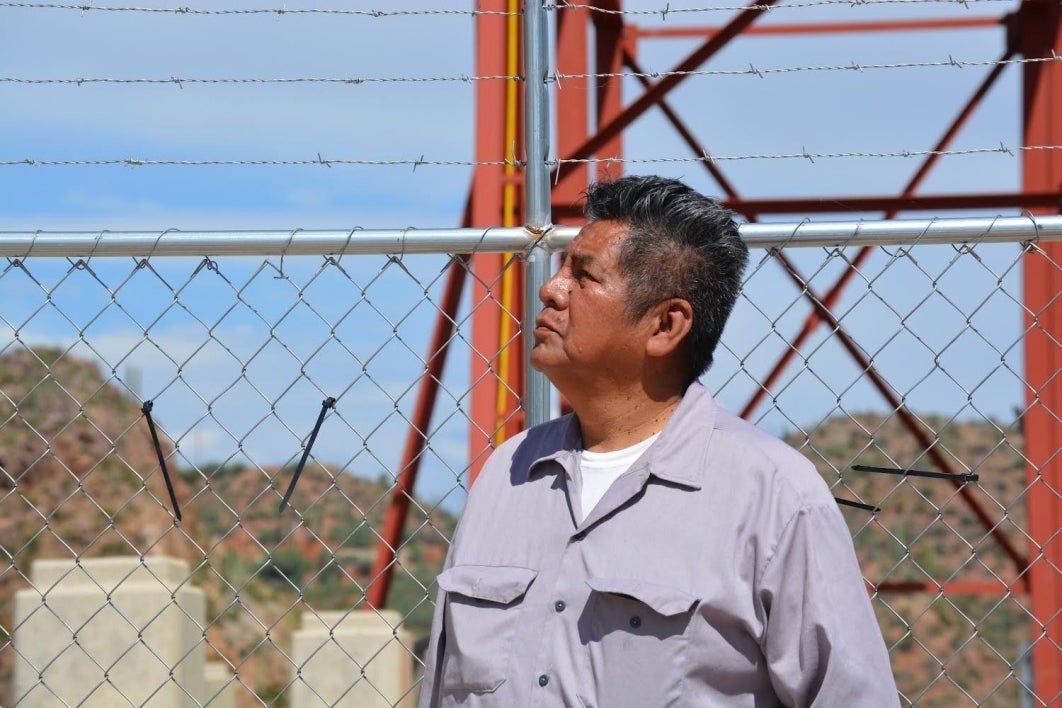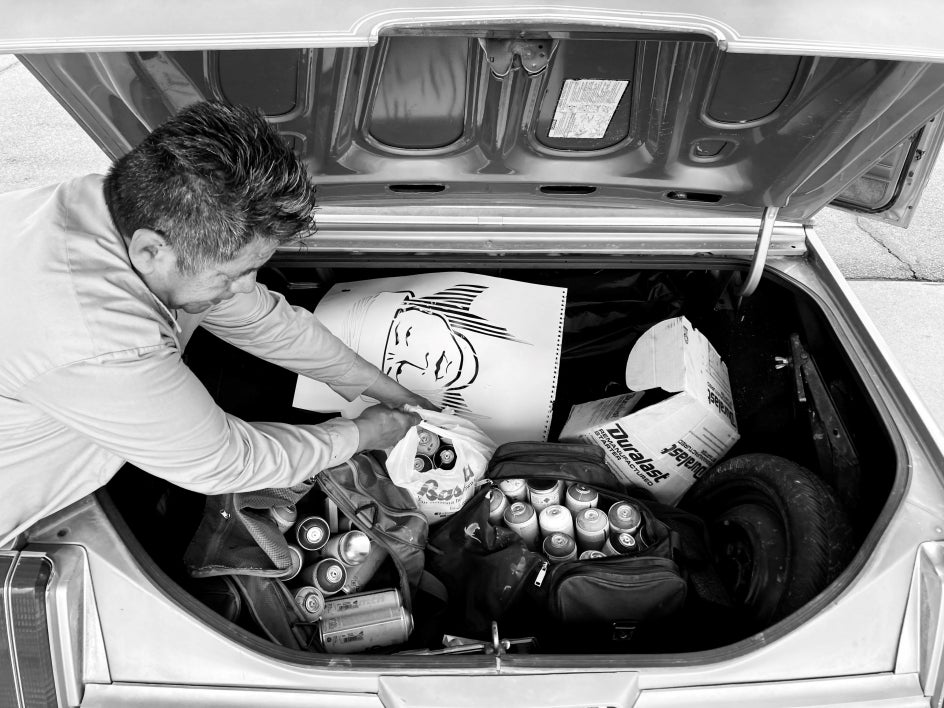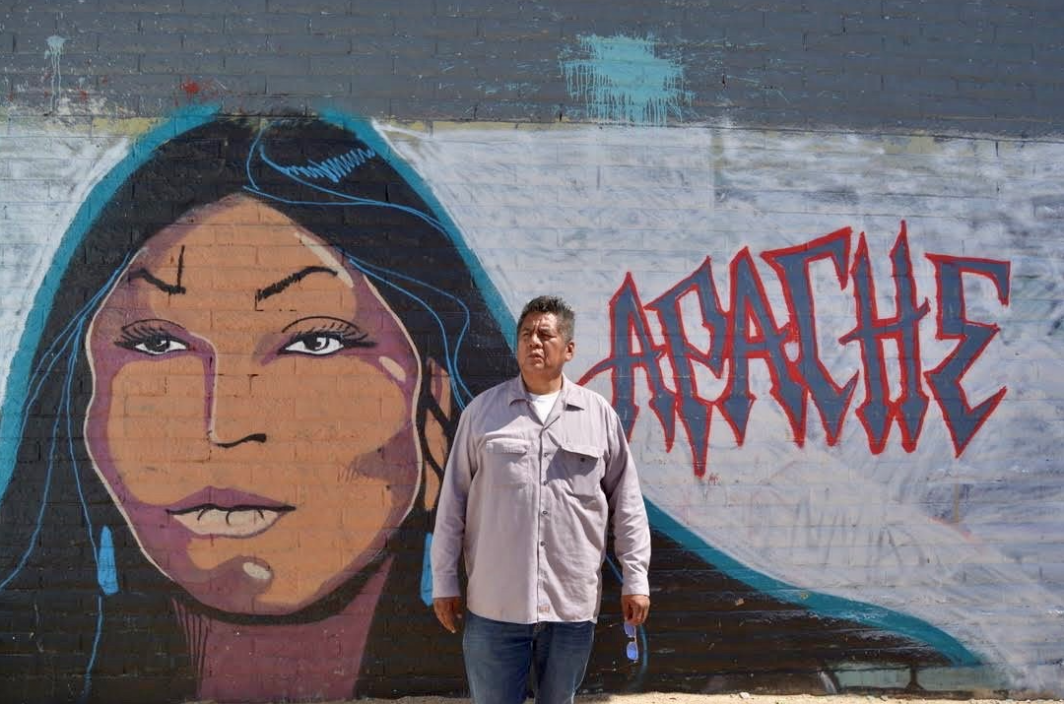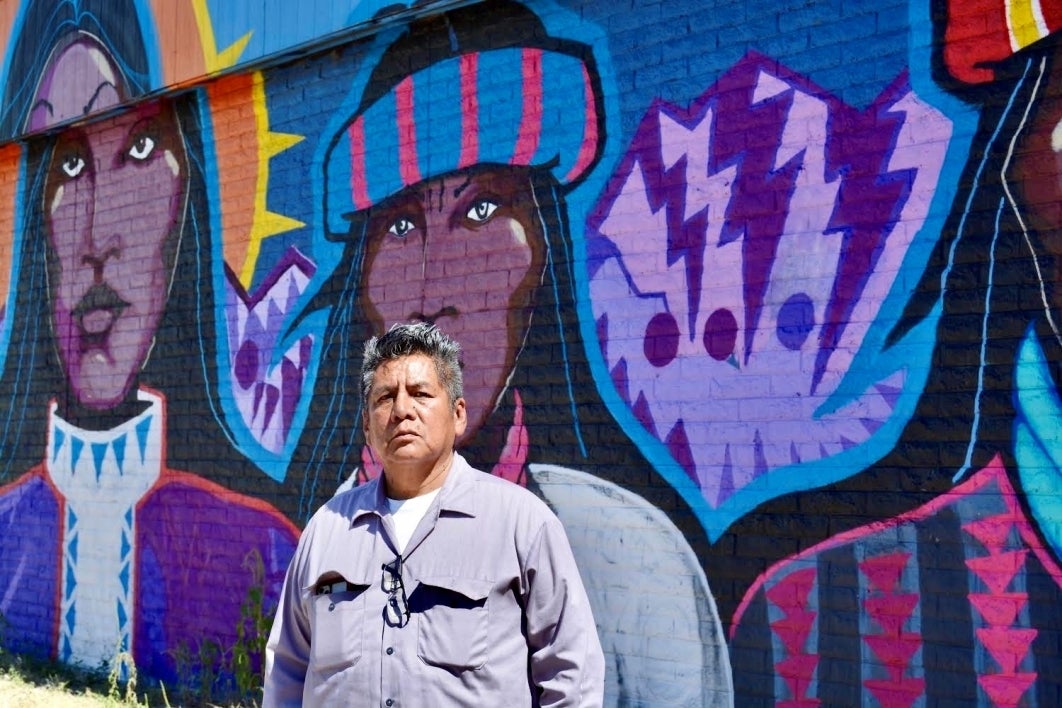For San Carlos Apache-Akimel O'odham artist Douglas Miles, the influence of his home community on the San Carlos Apache Indian Reservation on his art is “constant and never-ending.”
“The history of the Apache people prior to the founding of the San Carlos Apache Reservation and how they ended up there is important to understand how race, bias and prejudice shared the state of Arizona,” said Miles, founder of Apache Skateboards and the distinguished artist-in-residence at the School of Historical, Philosophical and Religious Studies (SHPRS) at Arizona State University.
San Carlos was once the home of Geronimo, a prominent leader and medicine man from the Bedonkohe band of the Apache people, and was nicknamed “Hell’s Forty Acres” during the 19th century because of the poor health and environmental conditions. It is now known as the San Carlos Apache Indian Reservation.
Within the reservation, Miles finds support from his family and community; they also offer him feedback and physical support when he’s working on a new project or series.
His art can be seen on buildings, old coffee tables, discarded truck hoods and more around San Carlos. Many depict Apache people against bold and colorful graffiti-inspired backgrounds.
“I think the street art influence was always in my work,” said Miles. “Starting from my formative years growing up in and around south Phoenix, my work was always influenced by Chicano and lowrider and graffiti art.”
Miles began drawing at a young age but was always exploring art mediums and finding new ventures to explore.
“I’m constantly using photography, film, graphics, social media, digital images, skateboarding, graffiti, street art, pueblo art, murals and found objects as my medium to speak to various topics,” said Miles.
One particular focus his work takes is to “center Apache and Native American voices as the builders and owners of their own narrative devoid of academia and non-Native scholars.”
“Presenting my work outside of my home community was always nerve-wracking and scary in the beginning of my career,” said Miles. “I never knew who would like it, understand it or not. I'm also proud of being able to show my work outside of San Carlos as well. I know it's an honor not often afforded many San Carlos Apaches.”
Outside San Carlos, Miles’ work can be found in the Montclair Art Museum in New Jersey, Eiteljorg Museum in Indiana, IAIA Museum of Contemporary Native Arts in New Mexico and the National Museum of the American Indian, part of the Smithsonian Institution group of museums and research centers, in Washington D.C., to name a few. His murals can be seen in different parts of the U.S., and his paintings are in private collections around the world.
“I want people to understand the power and the struggle, the joy and the pain and the learning and the love we all do when we think harder about the history that surrounds us with regard to Native American people in Arizona and in this country,” said Miles.
One of Miles’ biggest passion projects is his company, Apache Skateboards. After Miles painted a deck for his son — who then skated around San Carlos with it — Douglas Miles Jr. came home and told his dad that everybody wanted one.
Miles put together a team now known as the Apache Skate Team, and Apache Skateboards was officially launched in 2002. The group gives demonstrations, organizes contests and curates art shows around the country, but especially on reservations in the Southwest.
“I always felt inspired anytime I would travel with the Apache Skate Team to do a demo,” said Miles. “It was a Native youth community-building process that they accomplished through skateboarding when they traveled. I know Apache Skateboards, as a long-standing Native brand, has inspired many Indigenous artists and brand owners we see today.”
Miles recalls one instance where a 16-year-old, who later went on to be a great graphic designer and went to culinary school, said he was proud to see there was an Apache Skateboard company and that he “finally really felt a part of something.”
On Tuesday, Oct. 19, beginning at 10 a.m., those on the Tempe campus can come up to the fourth floor of Lattie F. Coor Hall, and those online can watch a livestream as Miles paints a large piece of artwork in the lobby.
This event will be the Open House hosted by SHPRS and is part of the inaugural Humanities Week taking place Oct. 18-22.
“We are excited and honored to host Douglas Miles as SHPRS’s first-ever distinguished artist-in-residence,” said SHPRS Director Richard Amesbury. “A world-renowned muralist, filmmaker and founder of Apache Skateboards, his work is both a celebration of Native experience and a strident critique of the violence of coloniality.”
As part of Miles coming to the SHPRS Open House, one of his skateboard decks will be given away in a student raffle. Students may also watch the 2019 documentary “The Mystery of Now,” which features Miles and Apache Skateboards.
SHPRS will be hosting many other events during the rest of Humanities Week that the ASU community is invited to attend.
Top photo: Apache artist Douglas Miles works on one of his murals in San Carlos, Arizona. Photo courtesy of Richard Amesbury
More Environment and sustainability

From ASU to the Amazon: Student bridges communities with solar canoe project
While Elizabeth Swanson Andi’s peers were lining up to collect their diplomas at the fall 2018 graduation ceremony at Arizona State University, she was on a plane headed to the Amazon rainforest in…

From environmental storytelling to hydroponics, student cohort crafts solutions for a better future
A select group of students from Arizona State University's College of Global Futures, a unit within the Julie Ann Wrigley Global Futures Laboratory, is laying the foundation to drive change…

2 ASU faculty elected as AAAS Fellows
Two outstanding Arizona State University faculty spanning the physical sciences, psychological sciences and science policy have been named Fellows of the American Association for the Advancement of…


